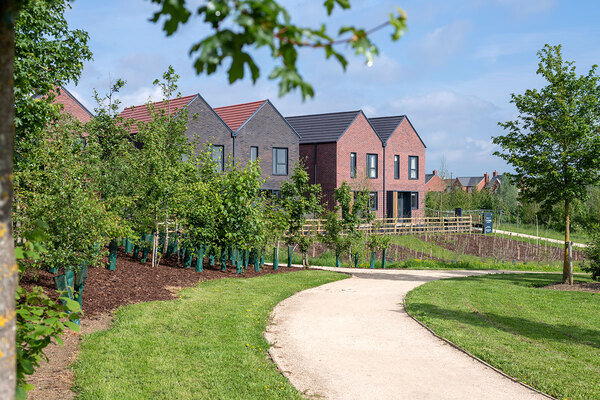You are viewing 1 of your 1 free articles
House builder loses nutrient neutrality court case against government
A High Court judge has rejected a house builder’s challenge to the government over a planning decision relating to nutrient neutrality rules.
Judge Ross Cranston ruled that planners were right to refuse permission for a development in the South West of England without an environmental assessment.
CG Fry, the builder, had pursued an appeal against central government and Somerset West and Taunton Council after the latter won a planning argument that meant hundreds of new homes in Somerset would be paused until issues around nutrient neutrality were resolved.
But the judge said that provisions of EU habitat regulations did apply to the development in question, despite the issue of nutrient pollution being raised after outline permission had already been granted.
In a response to the ruling, a lawyer acting for CG Fry said that the builder was considering whether to appeal the decision.
Charles Banner, KC at Keating Chambers, who represented CG Fry, posted on Linkedin: “Parties are discussing the potential for a leapfrog appeal to the Supreme Court.”
He said the judgement would present the government with challenges for any future legislative solution for the nutrients issue, adding: “Watch this space!”
The case revolved around CG Fry’s plans to build 650 homes on the Jurston Farm site in Wellington. Planning permission for the estate was granted by the council in 2015 and CG Fry has already completed the first two phases.
A third phase, for 190 properties, was approved in June 2020, two months before Natural England declared that no new development in the area could be given planning permission unless it was shown that it would not increase phosphate emissions, which are damaging wildlife and habitats in Somerset.
CG Fry claimed that when it subsequently asked the council to approve drainage plans for the new phase, the council retrospectively applied EU regulations aimed at protecting wildlife habitats, not just for the latest phase but also for all the homes that had already been built.
The builder said it would have to come up with a new drainage scheme for the whole estate, potentially adding millions of pounds to its overheads, making the development unviable and putting the jobs of staff at risk.
A government-appointed planning inspector dismissed an appeal by the developer and ruled that the council was entitled to act in the way it did, but a High Court judge later granted permission for a hearing, saying CG Fry’s grounds were arguable.
But in explaining his judgement at the end of last month, Mr Cranston said that “the habitats directive continues to have effect in domestic law” and “the discharge of pre-commencement [planning] conditions was a necessary step in the implementation of the development”.
Sign up for our regulation and legal newsletter
Already have an account? Click here to manage your newsletters











